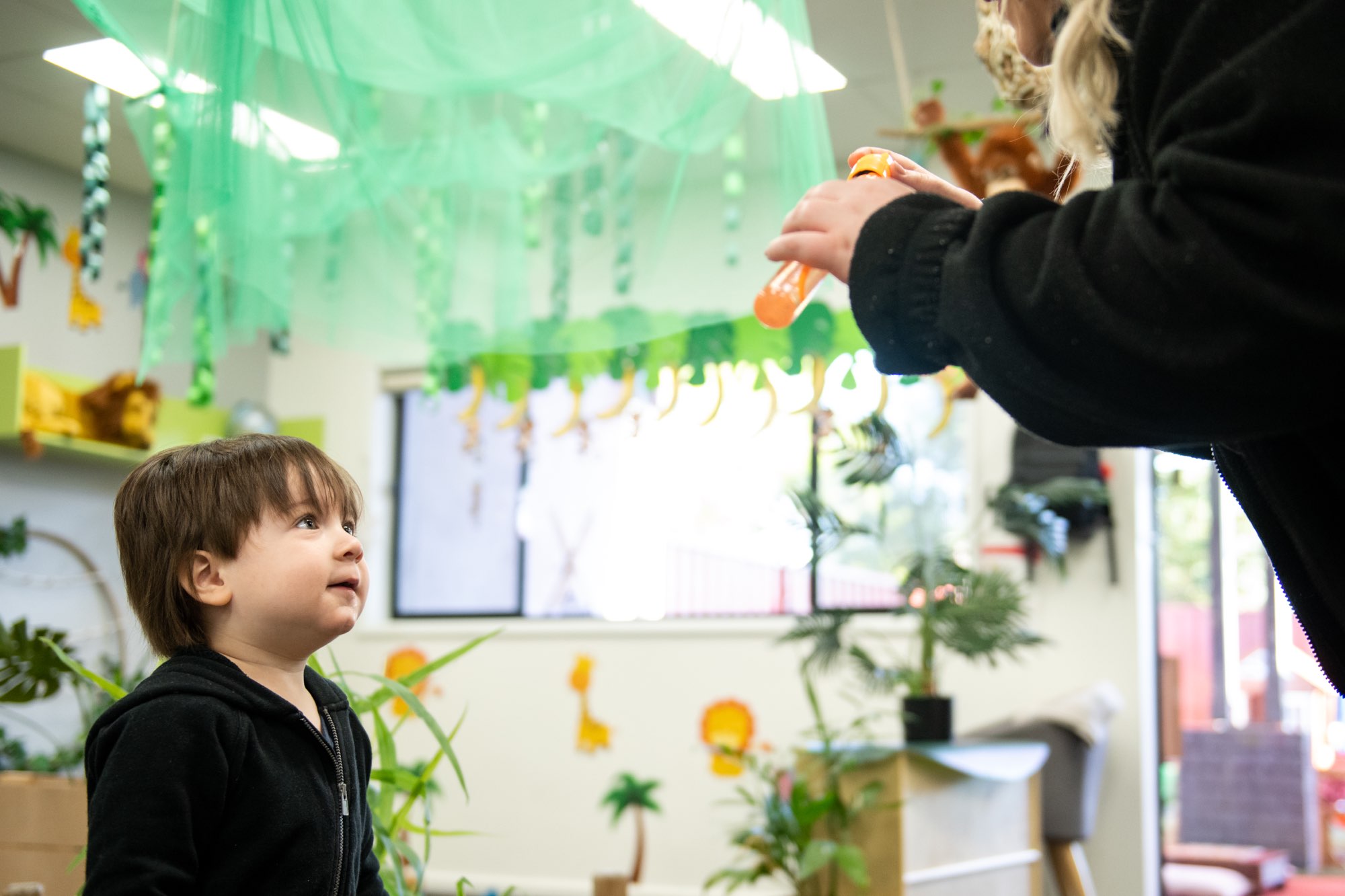
Post updated July 2025.
There’s something truly magical about bubbles. The way they shimmer in the sun, float gently on the breeze, and pop with the lightest touch - toddlers can’t resist them, and honestly, neither can we.
But bubble play is more than just a joyful way to pass the time. At Papilio Early Learning Centres, it’s a playful and powerful learning experience woven into our daily routines. It helps toddlers explore their senses, develop fine motor skills, build language, and regulate their emotions, all while giggling in delight.
Here’s why something as simple as bubbles can make such a big difference in your child’s early development.
1. A Sensory Wonderland
Bubbles light up the senses. Toddlers take in the sparkle and movement with their eyes, feel the tickle as a bubble brushes their hand, listen for the soft pop as it bursts, and yes, sometimes even taste one! These multisensory moments help little ones process and understand the world around them.
2. Tiny Hands, Big Skills
Every time a toddler reaches, claps, or tries to blow a bubble, they’re developing hand-eye coordination and fine motor control. These small actions strengthen the muscles in their fingers and hands - skills they’ll later need for writing, eating independently, and getting dressed.
3. Words in the Wind
“Pop!” “Again!” “So many bubbles!”
Bubble play naturally invites language. Toddlers experiment with new words, copy what they hear, and build confidence expressing themselves. It’s also a beautiful opportunity for shared excitement and early conversations with peers and adults.
4. Calm and Connection
For some toddlers, bubble play is pure energy. For others, it’s a soothing experience. Watching bubbles float can be calming for overstimulated little ones, helping them slow down, focus, and regulate their emotions. The rhythm of watching, reaching, and popping is comforting in its predictability.
5. Fuel for Imagination
At Papilio, we see toddlers turn bubbles into fairy lights, tiny planets, and invisible treasure maps. This kind of imaginative play strengthens creativity and supports flexible thinking, essential skills for problem-solving and learning through curiosity.
6. Sunshine, Movement and Nature
Bubble play almost always means heading outside, and that’s a win for growing bodies. Toddlers run, jump, reach and stretch, all while soaking up fresh air and sunshine. It’s screen-free, joy-filled movement at its best.
7. Bonding Moments That Matter
At Papilio Rosebery, one of our educators brings out the bubbles after morning tea. Music plays, bubbles fill the air, and the yard fills with laughter. It’s more than fun, it’s a moment of shared joy that helps toddlers feel safe, connected, and confident.
And for families, bubble play is such a simple way to connect. Whether you’re blowing bubbles, chasing them through the backyard, or laughing as they pop on your toddler’s nose, it’s a memory in the making.
Try It at Home
Mix 1 part dish soap with 6 parts water and a teaspoon of sugar for long-lasting bubbles. Head outside with your toddler and take turns blowing and chasing bubbles together - it’s an easy way to sneak in movement, learning and laughter.
Bubble Play at Papilio
At Papilio Early Learning Centres, we believe joyful play is the foundation of lifelong learning. Bubble play is just one of the many sensory-rich, emotionally supportive activities woven into your child’s day, helping them grow in confidence, creativity, and connection.
Because sometimes, it’s the simplest moments, like bubbles on a sunny day, that leave the biggest imprint on a little heart.
Want to see how we make everyday learning magical? Find your local Papilio centre >